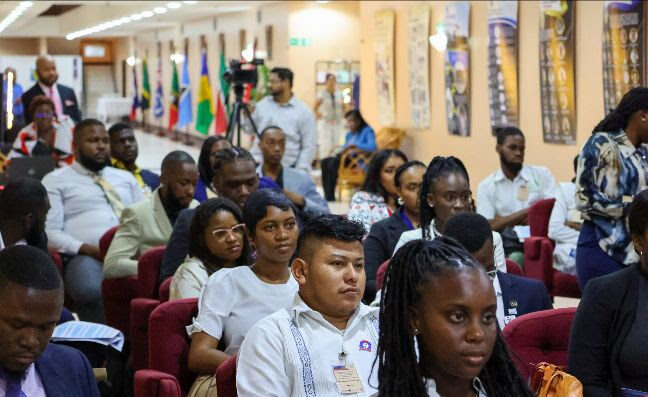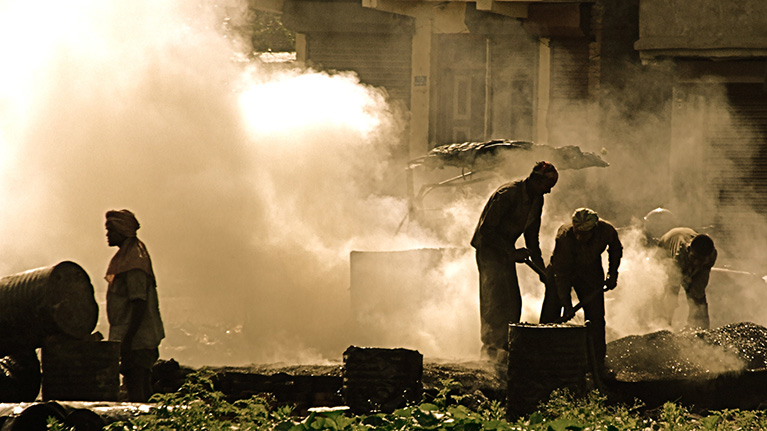By Adelle Roopchand
BELIZE CITY, Belize, May 04 2017 – More than 25 media and communications practitioners from nine Caribbean Community (CARICOM) countries met at the Ramada Belize Princess Hotel from 26-27 April for a capacity building training workshop.
The training, organised by the Japan-Caribbean Climate Change Partnership (J-CCCP), aimed at encouraging climate change outreach through media, to address one fundamental challenge of ‘inadequate awareness, information, technology and policy capacity,’ amid limited funding available.
Yoko Ebisawa, J-CCCP Project Manager, noted that media and communications practitioners play a vital role in encouraging policy innovation and have a greater reach to the general public, and it has become necessary to reiterate the climate change impacts, climate risk management and resilience building.
“Climate-related liabilities undermine sustainable development. Hence, it is important for all stakeholders to play their part,” she said.
“Inadequate awareness, information, technical and policy capacity and limited funding availability are some of the challenges faced with for informing and formulating a low emissions development strategy, hence the difficulty to direct and guide climate change mitigation investments in the Caribbean,” Ebisawa added.
Journalists and communications specialists from Barbados, Belize, Dominica, Grenada, Guyana, Jamaica, St Vincent and the Grenadines, Saint Lucia and Trinidad and Tobago were engaged in the fundamentals and myth versus reality of climate change; news literacy and climate change; getting climate change on the front page; pitching and developing story ideas; techniques to influence behaviours; communicating to impact behaviours [COMB], actions and policies; digital storytelling; interviewing techniques; and site visits.
“The plenaries provided participants with an overview of the science of climate change and the debate, policy issues and measures designed to mitigate and adapt to global warming and increase climate variability,” said Dr Kalim Shah, Climate Change and Energy Policy Expert and Professor at Indiana University.
“When writing about climate change, it is fundamental to understand the science involved. The past and present changes in climate and climate variability are related to anthropogenic and natural causes, the environmental, economic and social impacts of which, have to be considered at multiple geographic and sector levels to identify and implement mitigation and adaptation strategies.”
“Even though our countries are not responsible for significant greenhouse gas emissions in the global scheme of things, we are experiencing and projected to experience many of the effects of climate change on the front lines. We see intensified extreme weather events, high-temperature records and the ecological and economic impacts . . . but what we also want to report on are the less dramatic, slow onset, but no less insidious impacts that are less visible to the public – ocean acidification destroying coral reefs is one such. And we are still learning more and more about the climate implications – for example, outside of theory, we did not predict the resurgence of Zika and vector-borne disease tied to climate variations and we are only just understanding the Sargussum seaweed wash up events possibly attributable to a combination of climate-induced oceanic changes and marine pollution,” Shah added.

Facilitator, Dr Everold Hosein, outlined that journalists should be able to positively influence “climate proof” behaviours, actions and policies using the COMBI technique.
He noted that in order to change the behaviours of people, there must be buy-in and there must be understanding and willingness to change to bring about climate change adaptation.

The hands-on exercise took the participants to Southside, Belize City, a coastal community where visible changes in the land and sea have been noted as impacts of climate change. The community has been faced with an extreme change in weather patterns, eroding shorelines and banks and increased flooding.
Administration officials at the Wesley College, Southside, indicated that there has been inadequate measures for adaptation in the community and attributed human-made hazards as a key contributor to the many flooding together with the severe and adverse weather.
Phillip Willoughby, a Belize City Councillor, explained that while climate change outreach is an ongoing process, residents are continuously dumping garbage in the waterways, clogging drains and this results in flooding.
Other areas of learning for participants included interviewing techniques and digital tools for storytelling.
Participant George Worme, Editor in Chief of The New Today newspaper in Grenada, called on journalists to make an effort to keep up-to-date with climate change events and to discuss with their editors to find a resolve for more publication in the newspapers and online.

The J-CCCP is a regional initiative working in eight Caribbean countries, including Belize, Dominica, Grenada, Guyana, Jamaica, St. Lucia, St Vincent and the Grenadines, and Suriname to support advancing the process of inclusive low emission climate resilient development. The programme of work under the J-CCCP is in line with the Paris Agreement on Climate Change, to keep global warming below 2 degrees C and to drive efforts to limit the temperature increase even further to 1.5 degrees C above pre-industrial levels.




